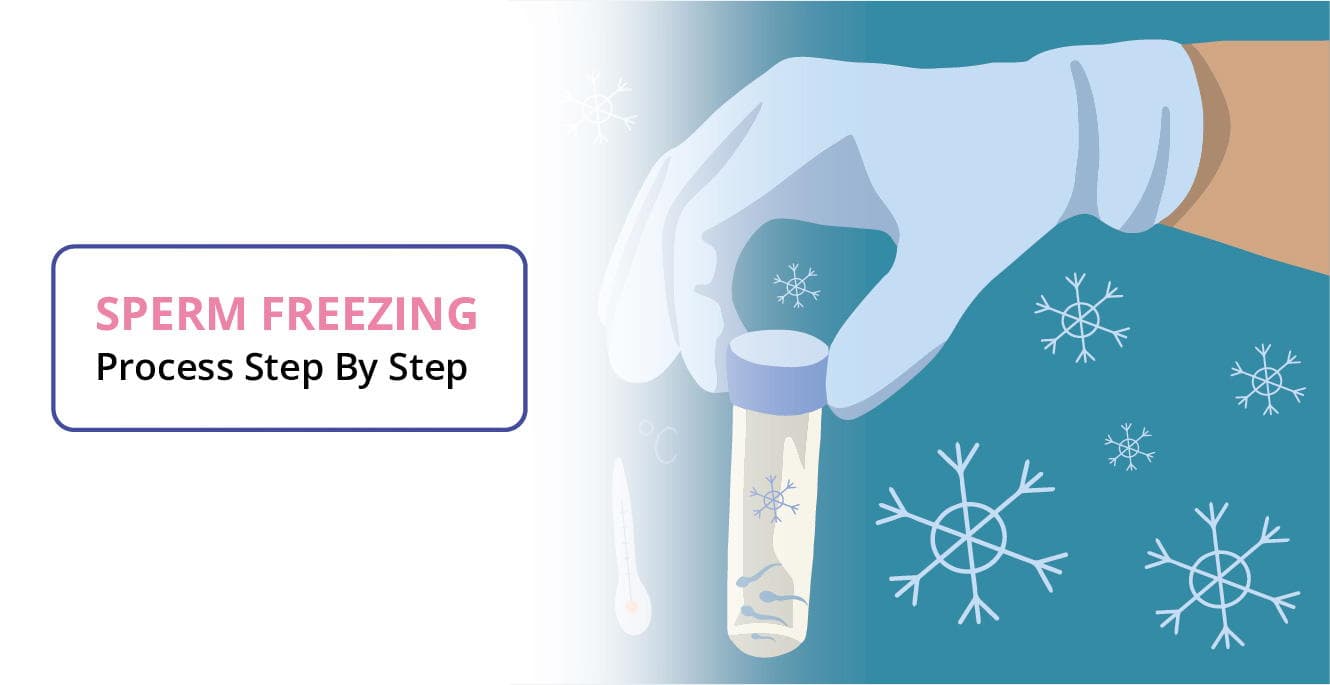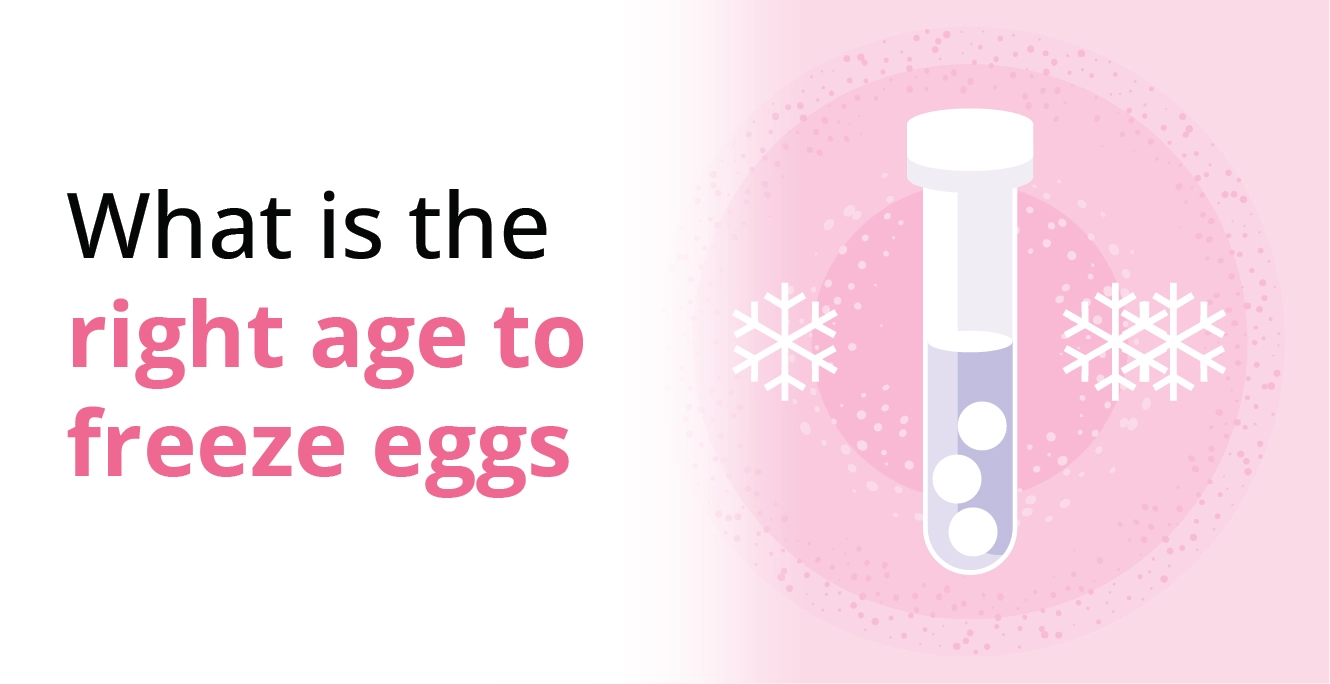
Sperm Freezing: Step by Step Process

Table of Contents
Sperm freezing, also referred to as cryopreservation in the medical community, is an essential reproductive preservation method that gives many people and couples flexibility and hope. This thorough blog offers an in-depth explanation of sperm freezing, including a step-by-step method, diagnostic considerations, a long list of advantages, associated costs, and helpful advice for people thinking about or having the treatment. Understanding the complexities of sperm freezing enables people to make knowledgeable decisions about their futures as parents and gives them confidence that their genetic material will be preserved.
Step by Step Sperm Freezing Process
From the initial consultation to the use following thawing, the procedure of sperm freezing is painstakingly planned out and involves several crucial processes. These actions comprise:
- Consultation: Discussion of the patient’s medical background, fertility objectives, and potential necessity for sperm freezing during the consultation.
- Semen Sample Collection: Ejaculating in a private collection room in order to produce a semen sample.
- Semen analysis: Analysing the sperm content and amount in the sample.
- Cryoprotectant Addition: Sperm are mixed with a cryoprotectant solution to avoid the production of ice crystals during freezing.
- Vitification (slow freezing): Using a particular freezing technique, such as slow freezing or vitrification, to protect the sperm.
- Storage: Placing the sperm in a cryogenic tank, frequently utilising liquid nitrogen, where it can last for a long time while still being viable.
- Thawing and Usage: Sperm is thawed and made ready for assisted reproductive techniques when necessary.
Diagnosis Condideration Sperm Freezing
Sperm freezing may be recommended for individuals facing various situations, including: Medical Treatments:
- Medical Treatments: Such as chemotherapy, radiation, or surgeries that can impact fertility.
- Occupational Hazards: Professions exposed to radiation or toxic substances may choose sperm freezing.
- Military Deployment: Service members may preserve sperm before deployment Fertility
- Preservation: Before undergoing fertility treatments like IVF, some men opt to freeze sperm as a precaution.
- Age-Related Concerns: Older men may choose sperm freezing to ensure reproductive options later in life.
Benefits of Sperm Freezing
Sperm freezing has several benefits, including:
- Fertility Preservation: Even if fertility is harmed by medical procedures or old age, fertility preservation maintains the possibility of having biological children in the future.
- Fertility planning: This kind of family planning gives people the freedom to have kids whenever they want.
- Peace of Mind: Reduces anxiety and tension related to the potential loss of fertility owing to conditions encountered in life or in the medical field.
- Assited reprodcutive Options: Provides assistance with various reproductive therapies, such as intrauterine insemination (IUI), IVF, and ICSI.
Cost of Sperm Freezing
Depending on the clinic, the patient, and the area, sperm freezing prices can change. A few contributing factors are:
- Fees for the initial consultation
- sperm collection
- Semen analysis
- yearly storage
Expenses without insurance protection could run from Rs.5000 to Rs. 15000. There are certain fertility clinics that provide package offers with discounted prices for several years of storage.
Tips For Sperm Freezing
- Plan ahead: Before undergoing medical procedures or making big life changes, think about sperm freezing.
- Pick a Reputed Clinic: Choose a reputable, licenced fertility clinic with qualified staff by conducting research.
- Discuss about Storage Duration: Choose how long you want to keep your sperm in storage, and find out how much it will cost.
- Update Information: Inform the clinic of any changes to your contact information or way of life.
- Usage Understanding: Learn about the procedure for using frozen sperm, the success rates, and related reproductive therapies.
Conclusion
Sperm freezing is a helpful method for protecting fertility and reproductive possibilities, giving people who are undergoing medical procedures or dealing with other life circumstances that could affect their capacity to have children in the future peace of mind. The step-by-step sperm freezing procedure, diagnostic considerations, advantages, disadvantages, and crucial advice are all covered in detail in this thorough guide, empowering readers to make educated decisions about sperm freezing and guaranteeing that their genetic material is still available for family planning in the future. If you are planning for IVF treatment or sperm freezing treatment, give us a call today to meet our expert. Or, you can fiil in the details in the give appointment form and our coordinator will call you back shortly.
Frequently Asked Questions (FAQs)
- How long does sperm storage last?
Sperm that has been frozen can be kept in a suspended animation state indefinitely. The maximum storage duration of 10 years set by regulatory agencies is extended indefinitely for patients with illnesses like cancer that can affect their fertility.
- How is frozen sperm made?
Using liquid nitrogen, which has a temperature of -196°C, the sample is frozen. Draining cell water and replacing it with cryoprotectant or antifreeze agents is necessary for successful cryopreservation. Simple osmosis is used to accomplish this. The sperm cells may be preserved as long as this temperature is maintained because once frozen, they are in a state of suspended animation where all metabolic activity has effectively stopped.
- What if there are no sperm in the semen sample?
Surgical sperm extraction may be advised to retrieve sperm for freezing or fertility therapies if preliminary analysis of the sperm sample suggests absence of sperm (azoospermia).
- What are the risks of freezing sperm?
The sperm may not survive the freezing and thawing process, which is a tiny danger. Cryopreservation technology improvements and the use of antifreeze substances, however, have greatly decreased this risk.
- Why sperm freezing is recommeded?
In the following circumstances, sperm freezing is advised:
- Planned vasectomy
- Cancer treatments, such as chemotherapy
- Any illness that raises the possibility of future infertility
- Male factor infertility, such as low sperm count or poor-quality sperm
- Exposure to life-threatening situations
Our Fertility Specialists
Related Blogs
To know more
Birla Fertility & IVF aims at transforming the future of fertility globally, through outstanding clinical outcomes, research, innovation and compassionate care.
Had an IVF Failure?
Talk to our fertility experts

 Our Centers
Our Centers












